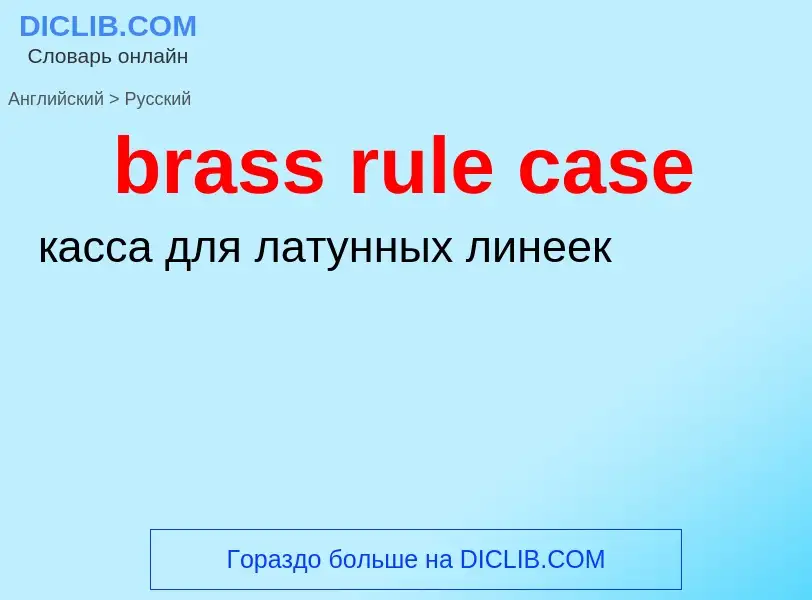Translation and analysis of words by ChatGPT artificial intelligence
On this page you can get a detailed analysis of a word or phrase, produced by the best artificial intelligence technology to date:
- how the word is used
- frequency of use
- it is used more often in oral or written speech
- word translation options
- usage examples (several phrases with translation)
- etymology
brass rule case - translation to russian
[ed'wɔ:djən,kɑ:]
общая лексика
"эдуардианский" автомобиль (выпуска 1906-18)
по имени английского короля Эдуарда VII [Edward VII, 1841-1910]
синоним
Смотрите также
существительное
общая лексика
кастет
Definition
-разветвлять
и разветвиться-разветвляться. Разветвление реки. Разветвление дороги.
Wikipedia
The Rule in Dumpor's Case is a common law rule of property law first set forth by Sir Edward Coke in 1578 (4 Coke 119b [1578]), in the case of Dumpor v. Syms. In its most basic form, it states that once a landlord has consented to an assignment of a tenant's interest in a leasehold estate, the landlord implicitly consents to all future assignments by the assignee.
This rule is still operative in some U.S. states and some other jurisdictions which follow English common law. The rule was abolished in England in 1859, as it has been in a number of U.S. states, but this does not automatically invalidate the rule in other jurisdictions which follow English common law. Parties sometimes seek to contract around the rule by putting a clause in the lease agreement (or in the document approving an assignment) reserving the landlord's right to approve or disapprove a future assignment. Whether this is valid, or how the parties may circumvent the rule in a different way if they are in a jurisdiction that follows the rule, depends the law of the jurisdiction where the real property is located.

![Jackson]] Model C Jackson]] Model C](https://commons.wikimedia.org/wiki/Special:FilePath/1905 Jackson Model C.jpg?width=200)
![K-R-I-T]] advertisement K-R-I-T]] advertisement](https://commons.wikimedia.org/wiki/Special:FilePath/1911KRIT.jpg?width=200)
![Royal]] Tourist model US Army vehicle, ''circa'' 1906. The vehicle was the conveyance of General [[Frederick Funston]] (leftmost figure in the back seat). Royal]] Tourist model US Army vehicle, ''circa'' 1906. The vehicle was the conveyance of General [[Frederick Funston]] (leftmost figure in the back seat).](https://commons.wikimedia.org/wiki/Special:FilePath/Royal Tourist.jpg?width=200)


![Ford's Theatre National Historic Site]], 2007 Ford's Theatre National Historic Site]], 2007](https://commons.wikimedia.org/wiki/Special:FilePath/Abraham Lincoln bodyguard's brass knuckles 04725u original.jpg?width=200)
![An [[Apache revolver]], a weapon that combines brass knuckles with a firearm and a dagger – [[Curtius Museum]], Liège, 2011 An [[Apache revolver]], a weapon that combines brass knuckles with a firearm and a dagger – [[Curtius Museum]], Liège, 2011](https://commons.wikimedia.org/wiki/Special:FilePath/Apache revolver.jpg?width=200)


